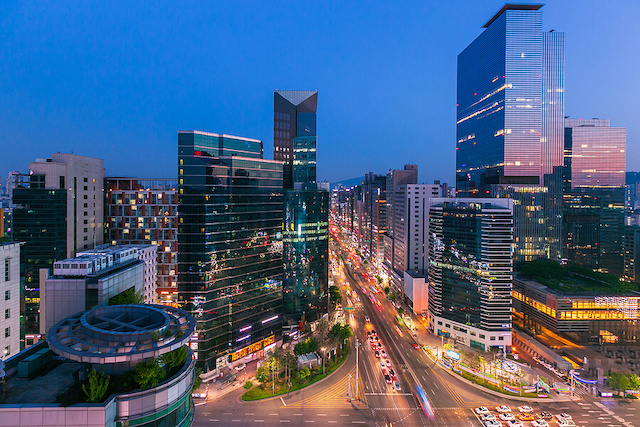Is it your dream to live or work in Korea? Many people fantasise about travelling to Korea, and even studying or staying there for a while. Fuelled by the romantic and cinematographic depiction of South Korea in Korean dramas, however, some people may have unrealistic expectations of moving there.
So, getting to know a bit more about their culture and way of living is super crucial. If you have serious wishes to live in South Korea, let us help you get a better glimpse of how it’s like to live there!
Below are some distinctly Korean habits you will encounter a lot when in the East Asian peninsula:
1. Brushing their teeth after each meal
Remember those health education classes in primary school? Your teacher or dentist probably taught you that you should brush your teeth twice every day. However, in Korea, many people take dental hygiene to another level.
The habit begins in school, where children are taught to brush their teeth 3 times a day, or after every meal. As a result, it is not unusual for Koreans to bring along their toothbrush and toothpaste to school or work. In some public toilets, you might even find free toothbrushes!
Why the obsession, though? Most will attribute it to the heavy spiced-laden foods they typically eat. Oral hygiene is basic etiquette to keep their breaths fresh and their pearly whites looking fine.
2. After-work drinks are the norm
Drinking is a huge part of the urban, South Korean culture. Seen as a way of socialising, it can occur between co-workers or friends, and take place all the way into the wee hours of the night. Rejecting an invitation to drink with your friends or colleagues might even be seen as an unfriendly act, especially if you do it consistently.
The party usually doesn’t stop after just one round of drinks at a bar, either. It is commonplace for groups to bar-hop across several establishments in one night. For some people, dropping into the noraebang (karaoke) is a usual part of their itinerary.
So, don’t be surprised if an after-work team dinner turns into a full-blown bar-hopping session lasting way past midnight! If you expect to go social drinking in South Korea, don’t forget to also learn about their drinking etiquette – which is another expansive topic by itself!
3. ‘Skinship’ between friends is usual
In Singapore, we are pretty conservative with our hands and personal space. If you see people holding hands on the street, we almost always first assume that the two are a couple. However, in Korea, physical affection – called ‘skinship’ over there – between platonic friends and same-gender buddies are a common sight!
Holding hands, linking arms, and hugging amongst friends are acceptable ways to show closeness and comfort. So, don’t assume that every two persons holding hands in public are romantically involved! Conversely, public displays of affection by romantic couples are more toned down compared to in societies like, say, the US.
4. Pushing and shoving is normal
On the topic of personal space, many foreigners might be shocked when taking public transport during peak hour for the first time. Koreans typically push and shove their way in and out of the subway, without remorse or apologies. If you are new to this scene, you might even feel offended. Yet, this is considered part and parcel of life in South Korea, especially in crowded cities like Seoul.
Other public transport practices observed include keeping to the right of the escalator, leaving the priority seats vacant for those it is meant for, and generally, keeping to yourself (that is, not speaking too loudly on the trains).
Apart from being familiar with these Korean cultural habits, being familiar with the language is a huge advantage if you’re going to Korea. It’s just so much easier to communicate, find your way around, and build rapport with the people you are living or working with.
Equipping yourself with the language at a Korean language course in Singapore before you go will be something you’ll thank yourself for. Let us here at Sejong Korean Language School help you with that!


